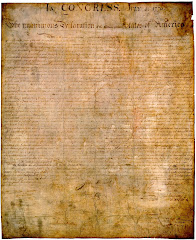
Geoffrey Wheatcroft | New York Review of Books | May 29, 2008
Blood, Toil, Tears and Sweat: The Dire Warning
by John Lukacs
Basic Books, 147 pp., $24.00
Troublesome Young Men: The Rebels Who Brought Churchill to Power and Helped Save England
by Lynne Olson
Farrar, Straus and Giroux, 436 pp., $27.50; $15.00 (paper)
Human Smoke: The Beginnings of World War II, the End of Civilization
by Nicholson Baker
Simon and Schuster, 566 pp., $30.00
Churchill, Hitler, and "The Unnecessary War": How Britain Lost the Empire and the West Lost the World
by Patrick J. Buchanan.
Crown, 544 pp., $29.95
1.
At the end of 1936, Winston Churchill's fortunes had sunk as low as he would ever know. His career had long resembled Snakes and Ladders, the nursery board game where a shake of the dice leads to either a brisk ascent or a downward slither. Already famous in 1900 when he entered Parliament at the age of twenty-five, he was home secretary at thirty-four (having nimbly deserted the Conservatives before the Liberals won their landslide in 1906), and went on climbing the ladder until the outbreak of the Great War. Then in 1915 he stepped on a nasty snake. He was saddled with the blame for the Dardanelles debacle and left government to command an infantry battalion on the Western Front. After easing his way back into office, he stealthily returned to the Conservative fold, but in 1931, while the Tories were in opposition, he resigned from the party leadership because of his bitter opposition to Gandhi's release from prison, and to any measure of Indian self-government.
A heroic account of his "wilderness years" in the 1930s, which Churchill promoted and which is current today among his huge American claque, has him as the noble lone voice crying out while his countrymen willfully ignored his warnings about the need to rearm against a resurgent Germany. It's true that most British people understandably had little enthusiasm for another war only twenty years after one in which they had lost three quarters of a million dead (equivalent to nearly six million Americans today). But Churchill's woes were largely self-inflicted, from India to what John Lukacs calls "his impetuous (and, in retrospect, unnecessary) championing of Edward VIII" in December 1936. In the most disastrous parliamentary performance of his life, incoherent and seemingly the worse for drink, Churchill pleaded on behalf of the King until he was shouted down. London bookmakers take bets on anything from sport to the weather to politics; what odds would they have given that December that, within less than four years, he would be prime minister, at the supreme crisis in his country's history?
Read more...





